
Arquivo para a ‘’ Categoria
No deal and Kiev besieged
The war remains horrendous and with no prospect of a ceasefire,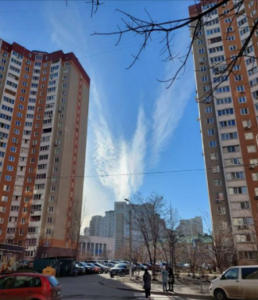 the third round of talks yesterday did not even result in a ceasefire for the humanitarian corridor that would allow civilians to leave, especially from regions where the fighting is bloodier. .
the third round of talks yesterday did not even result in a ceasefire for the humanitarian corridor that would allow civilians to leave, especially from regions where the fighting is bloodier. .
Russia has declared a series of hostile actions by the adopted sanctions that strangle its economy, among them: USA, Canada and the 27 countries of the European Union, in alphabetical order the other countries: Australia, Albania, Andorra, United Kingdom, Iceland, Japan, Liechtenstein, North Macedonia, Micronesia, Monaco, Montenegro, New Zealand, Norway, South Korea, San Marino, Singapore, Switzerland, Taiwan and Ukraine.
Brazil was left out, perhaps because of the president’s speech explaining the reasons for “neutrality” on Sunday, it managed to unite right, center and left: at least a diplomatic discomfort since a large part of the world has already condemned and imposed sanctions on Russia, including China and it would have more reasons than Brazil to join: ideological.
With no prospect of peace now, attention and tensions turn to Kiev, close to the city there are small towns and forests such as the Zalíssia National Park that presented some forms of resistance, however they were rejected with denouncements of violations and war crimes, there was no negotiation that would allow the evacuation of civilians, so many civilians are in the city.
In the evenings, the curfew comes and people go to improvised air-raid shelters, train tunnels, hotel basements, buildings and even churches (the crypts), which are the usual refuges.
Whatever the outcome of this struggle, the Ukrainian people and their president have won respect and admiration around the world, while Putin and Russia will come out as villains, even though there have been peace protests, Putin’s position is strong within Russia and there is a strict control of media and narrative.
Kiev lives on hope and a motivation to defend its people (in the photo a cloud that looks like an angel photographed by resident Oksana Kadiivska, from Kiev’s Darnitsa district).
To those who have some form of belief, there is hope for a better time, also in mentalities, since warmongering, intolerance and little empathy walk the streets.
Love enemies and avoid wars
Last week we talked about how famine, pestilence and wars were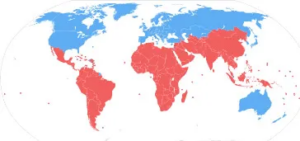 closely correlated, in yesterday’s post we showed how the “division” of Europe was in the post-war period, the first North African countries that were under France (Libya and Tunisia) and Spain (Morocco), and we discussed the wars that still take place there due to phosphate mining.
closely correlated, in yesterday’s post we showed how the “division” of Europe was in the post-war period, the first North African countries that were under France (Libya and Tunisia) and Spain (Morocco), and we discussed the wars that still take place there due to phosphate mining.
Virtually all of Africa was colonial, except for Liberia and Ethiopia, the latter, which is still the headline of famines and wars, is now joined by Somalia, which was an Italian colony, in the post-war period Russian influence in the liberation struggles increased. influence in several regions, such as Angola, Mozambique and Guinea Bissau, but practically all of Africa enters this boiling process, and the allied forces that had formed the United Nations, Japan defeated in the war had to recognize the independence of Korea (until then unified) and the concession of the Kuril Islands to the Soviet Union, but which have recently fueled tension between Russia and Japan.
So the United Nations was not able to promote independence without big and bloody wars in Africa, some still persist, decolonization is just a new way of dependence, just as in America dependence on ideological struggles, these cultural and internal, never allowed real peace and an end to the cold war.
The fall of the Berlin Wall and the dissolution of the Soviet Union, with several countries becoming independent and returning to their original culture, it is a mere illusion to think that they are buried by ideologies, it seemed to give rise to a world where political, cultural and religious diversity would be tolerated, although the Arab tension never happened, the Arab Spring was an encouragement, but the forces that are still alive within these nations are still operating vigorously, see tensions in Libya, Congo, Sahara and many others, too Latin America is experiencing a polarization sometimes to one side and sometimes to the other.
The economic and political strength that China has gained, the new geopolitical influences of Russia, the tension between the north and the poor south, the crises of the democracies all seem to accelerate a process of establishing a New World Order, some more fatalistic currents call it for the acronym NOM, but in fact all this is just the boiling of issues that the post-war period has not resolved, the United Nations is still not what it promised to be a real “concert of nations” that live in peace and negotiate conflicts.
So we live a bipolar tension in many ways, north-south (photo), colonies and colonizers, ideological tensions that act today more internally than externally, and a pandemic that accelerated this whole process, if the world could be polarized it could be unipolar, there is a positive perspective that would be the real “concert of nations” and a bad one that is the polarization in one of the perverse factors that have already acted on humanity.
How to live with such huge cultural and political differences, a principle of friendship or peace that is always threatened is not enough, it is necessary to accept and defend diversity, to overcome the concept of “enemy” in the form of hate and intolerance (we wrote several posts to explain this), what in terms of Christian culture is called “loving your enemy”, says the reading Lk 6:27-28: “I say to you who hear me: Love your enemies and do good to those who hate you, bless those who curse you, and pray for those who slander you”, in other words neither unipolar nor bipolar, but a multipolar world.
Hate and Intolerance in History
It is necessary to know the historical process to understand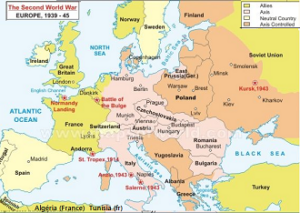 the bases on which a world polarization and an alleged new world order, a very vague term and subject to many interpretations, which led to polarization in the period of the Cold War and which seems to return with new molds, where the leaven of hate can flourish.
the bases on which a world polarization and an alleged new world order, a very vague term and subject to many interpretations, which led to polarization in the period of the Cold War and which seems to return with new molds, where the leaven of hate can flourish.
The reasons that led to the formation of the Axis, an alliance with the Nazis in World War II, were: territorial expansion with the creation of empires based on military conquests and the overthrow of the post-First World War international order, and the destruction and neutralization of Soviet communism.
Germany and Italy signed 1st. November 1936, a week after announcing a friendship pact, the creation of the Rome-Berlin Axis and then on November 25, 1936 the Anti-International Communist Pact (Comintern) in opposition to the Soviet Union, Hungary, Bulgaria and Slovakia joined the Axis in November 1940, later Croatia joined, Finland joined the USSR in 1941 and in April of that year Yugoslavia was invaded and dismembered by Axis forces and then the Soviet Union.
At the beginning of the war, in 1st. From September 1939, the allies were France, Poland and the United Kingdom, as well as the states dependent on the British Crown: India, Australia, Canada, New Zealand and South Africa, after the invasion of Belgium, in addition to the Netherlands and Greece joined the allies, the Soviet Union supported the invasion of Poland, but realizing that it would be betrayed by the Nazis, it also became an ally, the United States would fully enter the War after the attack on Pearl Harbor (7 December 1941 ), supported with money and weapons until then, in December 1941 it became an allied member with troops and sending heavy weapons to Europe.
China has had a protracted war with Japan since the Marco Polo Bridge Incident in 1937, which was an incident of the disappearance of a soldier and troops stationed on either side of this bridge that is close to Manchuria (the disputed region), so China officially joined the Allies in 1941.
With the Axis practically defeated, the Tehran Conference was held with the first territorial divisions of the occupation troops in each country, this is important to understand the Soviet advances constituting Eastern Europe, the D-Day of the disembarkation of the troops in Europe was held in December 7, 1941.
The Potsdam and Yalta conferences were held on July 17 and August 2, 1945, respectively, before the bombing of Nagasaki and Hiroshima on August 6 and 9.
Two attitudes must be analyzed in the post-war agreements, one is the reintegration of German territory to the war in the limits before the first war, with the exception that the place where the former Königsberg was after Stalingrad and today Kaliningrad was taken by the USSR and the Germans. were expelled, the negative was the nuclear bomb on Nagasaki and Hiroshima when the war was practically over, and the effects of the bomb marked the history of mankind forever, dropped in August 1945.
In the next post, we will analyze the advance and the almost end of the cold war and what can cause an imbalance and create a New World Order, an acronym used in different ways.
Covid: beginning of a possible fall
While the moving average and the number of infections remain at high levels, there are already signs of a downward trend, 58,056 cases in the last 24 hours, however the number of deaths remains high in most states (880 deaths on average mobile), being in stability only in 4 states: Santa Catarina (SC), Amazonas (AM), Roraima (RR), Goiás (GO), did not disclose TO – Tocantis and DF – Federal Distrit Brasilia, it is necessary to emphasize that given states always refer to “known cases” because there is no policy of mass testing.
high levels, there are already signs of a downward trend, 58,056 cases in the last 24 hours, however the number of deaths remains high in most states (880 deaths on average mobile), being in stability only in 4 states: Santa Catarina (SC), Amazonas (AM), Roraima (RR), Goiás (GO), did not disclose TO – Tocantis and DF – Federal Distrit Brasilia, it is necessary to emphasize that given states always refer to “known cases” because there is no policy of mass testing.
Researcher Raphael Guimarães from Fiocruz argues that the adoption of public policies for the collective control of the pandemic, in addition to the hygiene measures that are maintained, can lead the country to control the pandemic in the first half of 2022: “At this moment, Brazil gathers some favorable conditions to block the virus”, the researcher explained to the press.
Maintaining distance, for example, and limiting the number of people in collective events are important when adopted, but what is observed is that distance is not the collective behavior of the population and inspection ceased to exist in most cases, With few exceptions, the result is hospitals that are still full, together with the vaccination of influenza, which is still small, and the vaccination of children who still have only the first dose.
While in Europe the downward trend has already been observed, in Latin America 63% of people are already vaccinated, but coverage remains uneven, data from health agencies in the region (PAHO) indicate that 14 countries have already vaccinated 70% of the population while the others failed to achieve even 40% of this coverage, reports PAHO Director Carissa F. Etienne: “These data are crucial for designing targeted vaccination campaigns, maximizing the impact of doses, and saving lives,” who thanked vaccine donor countries.
Donors who “helped our region secure doses when supplies were limited”, citing donations from the United States, Spain, Canada, Germany and France, which totaled 26 million doses, but expects to reach 100 this early this year. millions of donation doses.
Public policies must be more affirmative and not give up the necessary supervision, so we can imagine a more peaceful second half of the pandemic.
Happy are the peacemakers
The cycle of plague, famine and war in whatever order it has taken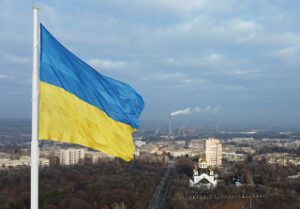 place in history is fed back because the forces that promote peace succumb and among them are also the true spiritual forces that desire the progress of the human soul, which is inseparable from the substantiality of life. , not only human, but of the entire planet.
place in history is fed back because the forces that promote peace succumb and among them are also the true spiritual forces that desire the progress of the human soul, which is inseparable from the substantiality of life. , not only human, but of the entire planet.
The 20th century, in addition to the second world war, everyone who lived through it narrates the horror of this period and the deprivations they went through, especially the poorest, was also marked by authoritarian regimes and Franco, Salazar and De Gaule in Europe, the liberation struggles colonial times, and the civil war in Spain, all wrapped up in atrocities and many deaths.
With the end of the pandemic imminent, but it should be noted that it is still advancing in the southern hemisphere, a cycle of social deprivation approaching a war would be the least desirable and there are no diplomatic forces that can avoid it, what would be the consequences of an insanity of this type is for all analysts, unpredictable in proportion and extent.
There are forces that fight for peace in the underground of societies, today’s pronouncement (02/11) by Pope Francis is one of these forces, but even within religions and spiritualities (we have already discussed the true asceticism) there are those who sadistically (because have not lived and read testimonies of the war) are not bothered by this danger.
The pope said forcefully: “war is madness”, and asks for dialogue, several diplomatic attempts have been made but the paths of any bilateral agreement seem to be closed, in a way because the parties do not seem willing to give in on problematic points. (the presence of NATO and Russia itself in Ukraine, for example), the pope also asked that this dialogue be “serious” and that each side really be willing to listen and give in to a possible agreement.
As the hours go by, the attempts seem to be running out, the common citizens of both countries, the poor and the vulnerable, most would never approve of a war, there is hope and faith that they will be minimally spared if the absurdity happens.
On the eve of a football club world, where the dispute ends with the end of a match and in the midst of the Winter Olympics, despite all rivalries, in this case the desirable thing is that in addition to the opposing sides, everything is consummated from a certain end point, and in this case the supporters of two or more teams, is more humane than the insane dispute for territories and warlike advantages of a war with unpredictable consequences.
The biblical liturgy says, in the passage in which Jesus meets his disciples and a crowd on a plain (all on the same plane) of Tire and Sidon (Lk 6:20=21): “Blessed are you who are poor, for yours is the God’s kingdom! Blessed are you who are hungry now, for you will be filled! Blessed are you who weep now, for you will laugh!” and explains that the rich and powerful once had the solace in this world and the false prophets who are applauded, because they did not have the courage to tell the truth.
Let us hope that a remnant of serenity, tolerance and balance remain in the great world war forces and the war is avoidable.
The hunger in World
The Welthungerhife report shows the map of hunger  in the world, where it is evident the concentration in Africa where the poorest countries are and also remnants of a period of colonization (there is still this presence there) that mattered little to the population.
in the world, where it is evident the concentration in Africa where the poorest countries are and also remnants of a period of colonization (there is still this presence there) that mattered little to the population.
The countries with the lowest per capita income in dollars are concentrated there: Somalia: $953, Central African Republic $996, Republic of Congo $1203, Mozambique $1338, Niger: $1503, Malawi $1503, Liberia $1623 and Madagascar $1630 , there are also wars over the division of territories, diamonds and the extraction of minerals:, as is the case with the phosphate ore in which they are involved: Spain, Morocco and Mali, but also Western Sahara rebels fight for independence in territory claimed by Morocco .
The war that has economic interests and neo-colonization behind has always been present there, Somalia is a typical example of this as it led the country to even greater misery and the Pandemic made the crisis more alarming.
There are still no conclusive studies on the real impact of the pandemic in this territory, a recent report called “The State of Food Insecurity and Nutrition in the world (SOFI) of 2021 trans some efforts of United Nations agencies to map and outline a policy and estimates that a tenth of the global population, estimated at around 811 million people in the world are undernourished in this period of the Pandemic, which shows an alarming picture.
A war of global proportions could further aggravate this situation, also more egalitarian health policies (a distribution of vaccine proportional to the number of inhabitants, for example) are necessary measures to prevent that, in addition to poverty, the number of deaths continues to grow in the aftermath of the pandemic.
Little history of Ukraine
In the 3rd century the region was inhabited by the Goths (250-375),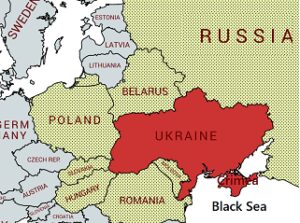 the region was called Aujo, there was a Cherniacove culture there, the Ostrogoths settled in 350 with the influence of the Huns, to the north there was a people who had a Kievan culture (then later Kyiv or Київ).
the region was called Aujo, there was a Cherniacove culture there, the Ostrogoths settled in 350 with the influence of the Huns, to the north there was a people who had a Kievan culture (then later Kyiv or Київ).
The origin of today’s Ukraine is in Slavic tribes that arrived in this territory in the 5th and 6th centuries, in the 9th century Viking invaders arrived, called Varigi, the Mongols invade in the 13th, King Igor I with a young Varigi teenager named Olga united the peoples, this kingdom called Rus had Kiev as its capital, the king will be killed and Olga takes power with great vigor and courage, and dominates the peoples, Olga will occupy a special role and then convert to Christianity with great work in favor of the poor .
Olga is a separate chapter, after being a strong queen and to a certain extent cruel to her enemies, her son takes over the kingdom and she converts to Christianity, built churches, carried out evangelization campaigns, but was unable, however, to convert her son. Sviatoslav (Svyatoslav I), helped the poor and sick people so much that he became a saint recognized by the Orthodox Church in the year and by the Catholic Church of the Byzantine Rite, his son did not convert, but his grandson Vladimir I converted and also was declared a saint.
The Variagi commanded several strategic points in Russia and explored transport and trade, so during the 10th and 11th century, the territory of Ukraine became the center of a powerful and prestigious state in Europe, called at the time Kiev Russia (recall was the kingdom of Rus) and were also the basis for many subsequent Slavic nations (such as Greater Bulgaria and Belarus, for example), in addition to the Russians themselves who were then just scattered Slavic tribes.
The state was conquered by Casimirio IV of Poland, while the heart of ancient Kievan Russia passed to the control of the Grand Duchy of Lithuania, but the marriage of Grand Duke Jagellan of Lithuania to Queen Hedwig of Poland, changed control of the sovereigns. Lithuanians to most of the Ukrainian territory and thus returned to Ukraine.
We take a leap into history, which is also rich in the medieval period, a civil war that lasted 4 years after the Russian revolution (1917) in 1921 Ukraine becomes a Soviet socialist republic, with purges and land grabs that Ukrainian farmers refused to deliver, Ukraine is a major grain producer.
The Stalinist period and the Nazi occupation of its territory, which caused more than 10 million deaths between 1930 and 1945, Ukraine resisted Russian collectivization and Nazi invasion, Ukraine in the Soviet period was responsible for ¼ of Soviet production in the agricultural sector producing 40 million cereals, a record for the time.
Finally, the problem of the Crimean territory, which has its origins in the war of 1853 and 1856 where there was a conflict between Russia and an alliance formed by France-United Kingdom-Kingdom of Sardinia (today part of Italy), in 2014 the war is reborn with the takeover by Russia, it should be clarified that there was a contract between Ukraine and Russia in a kind of leasing for the concession of the Balkan port where Russia’s largest maritime fleet is located, in Sevastopol, which was thus an independent territory of Ukraine.
Thus, among the most absurd analyzes is the one that says that Ukraine would be unviable as an independent state, it is weakened by an internal war and under Russian pressure.
Moving forward to true thinking
No thought is complete if it does not have a spirituality, what modernity calls subjectivity but which is separate from objectivity as is typical of dualism, creates two realities and neither is part of the whole.
calls subjectivity but which is separate from objectivity as is typical of dualism, creates two realities and neither is part of the whole.
Contemplating the whole means considering the depth of our Being and understanding that we are part of an immense universe full of mysteries, and that our soul yearns for infinity and that is where a true spirituality walks, which is not separated from the substantiality of life (the which is called objectivity in modernity, which is just the part) and that without it we do not contemplate and live the whole, we live a segmented life.
To replace it with a small part, small vices and pleasures, is to walk in frivolity, in superficiality, no true asceticism does without a spirituality, and there is no spirituality without contemplating the human soul as part of the whole of our Being, thus surpassing anthropotechnics and to arrive at an onto-anthropotechnic that looks at things and also at the soul.
Many exercises, from the physical to the spiritual, are done seeking this asceticism, at this point Sloterdijk is right almost all of them are “despiritualized” but his explanation is incomplete because there is no eschatology in their spheres, this reasoning is done especially in Spheres II, which is the whole towards which we walk, it is possible to go to Him.
Yes, it is possible if we move towards deeper waters, seek the completeness of our substantiality, overcoming anthropocentrism and understanding the Earth and the Universe as our home, our abode, but mainly walking and casting the nets for deeper thoughts and spiritualities, there is at high sea, even if raging, what our soul longs for: the eternal.
The biblical passage Lk 5:4-5 says, right after Jesus taught the crowds and Peter (Simon) complained that they had not caught anything, Jesus answers him: “when he had finished speaking, he said to Simon: “Go into deeper waters, and cast your nets for fishing”, Simon replies that he worked all night and caught nothing, but obeyed and cast the nets.
The result was a great fishery. Here, the substantiality of the food and also the spirituality of advancing “to deeper waters” are worthy.
Scientific truth and humility
From the Copernican revolution, with the discovery of Galileo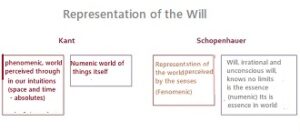 and with the scientific advances it should be clearer, even more now with the discoveries of unknown forces of the universe and with the new telescopic James Webb, it should be more and more clear that the man does not he is the center of the universe, although he is capable of doing a lot of damage if he does not put aside the anthropocentric and enlightened vision that places him as an “all-powerful”.
and with the scientific advances it should be clearer, even more now with the discoveries of unknown forces of the universe and with the new telescopic James Webb, it should be more and more clear that the man does not he is the center of the universe, although he is capable of doing a lot of damage if he does not put aside the anthropocentric and enlightened vision that places him as an “all-powerful”.
Schopenhauer also followed, one of the first to criticize the Kantian “thing-in-itself” and his metaphysical system of putting in its place a “Will” (which is the same thing as when man was placed as the center of the universe and the earth where its center inhabits), opened a new philosophical perspective where nothing exists on purpose, everything and we are all consequences of an endless system, with determinations and goals, and that we are responsible for one fate hurting the other, we are hurting ourselves.
In this way Schopenhauer wanted to represent in a compassionate way that he can represent in himself the pain of another, and this would be a great step towards peace, although the phrase of this philosopher is capital: “Man is properly speaking, an animal that attacks” (Arthur Schopenhauer), which goes back to the “wolf man of man” and justifies an aggressive state.
The well-known foundation of Kantian ethics is the categorical imperative (act in such a way as to be a model for others) that serves to guide the actions of subjects, and this in turn is the principle of a “factum” of reason, which is part of the world. numenic, which manages to influence (not in principle sense) the phenomenal world, in order to guide the actions of the rational subject in a universal and necessary way, Schopenhauer at this point makes an important criticism, although it is not enough for a deep criticism of this ethics.
For him, the Kantian ethical program is meaningless because it has as its ultimate foundation of action a metaphysical aspect that disqualifies actions that come from any other instance than reason, the relationship that exists between reason and metaphysics (see that the Kant’s metaphysics is not part of the world, but it is neither theological nor divine), is that rational subjects (transcendental in relation to objects) share the unknowable, since they are able to think about metaphysical things, but not know them.
Numenic refers to what is known without being part of the senses, it is a criticism of empiricism but does not recognize the phenomenal (which manifests itself as a thing).
This gap where there is no mystery, it is natural that it has distanced itself from divine and theological transcendence, but it is an objectified reason, without subjective aspects, that is, proper to the subject, and Schopenhauer correctly points to the pain of the other who is capable of conceiving. , but this principle of compassion will not have a development, other phenomenological authors deal with the question of the Other, and this is a principle for the critique of reason.
James Webb arrives at his destination
Exactly one month ago, the new James Webb Space Telescope observatory (JWST Nasa) arrived yesterday at 17:00 (Brasília time) in a region where with a minimum of fuel consumption he will be able to remain in orbit, called the Lagrange L2 point, which is actually a region between the Earth and the Sun where the centripetal (attractive) force is balanced with a centrifugal force.
observatory (JWST Nasa) arrived yesterday at 17:00 (Brasília time) in a region where with a minimum of fuel consumption he will be able to remain in orbit, called the Lagrange L2 point, which is actually a region between the Earth and the Sun where the centripetal (attractive) force is balanced with a centrifugal force.
In fact, they are regions and therefore called orbital islands, every planet in the solar system has Lagrange Points and as they move away from the Sun these islands are larger, the island related to the earth is about 800,000 km wide, the which in spatial terms is small, the point L2 for example is 5 million km from Earth and still very far from Mars, 57.6 million is the distance from our neighboring planet.
The observations will still take 5 months to calibrate all equipment, adjust the mirror and aim for the first targets.
Now it will be 5 months of work for Webb to send the first images on his “targets in the infrared universe”, he will not look for exoplanets or new points, but point to known points and make measurements more precise and with greater definition, Webb’s mirrors ( hexagonal) that should have a complicated and fine adjustment will have up to 5 times the power of Hubble’s mirrors, in addition to using a more sophisticated technology that is infrared, where you can “see” by observing the light strongly “deflected to the red” of distant objects and can peer through clouds of murky dust, it will be able to sift through exoplanet atmospheres identifying gases with greater precision.
More than 1,000 teams of astronomers from around the world have requested time on the Webb in its first year and 287 have already been lucky enough to be pioneers, among the questions from these teams are looking at the ice-covered oceans on Uranus’ 27 moons, the icy giants Uranus. and Neptune can explain much of the origin of galactic systems, look at black holes that are of average size and resolve conflicting measurements on the rate of expansion of the universe and generally speaking will use Webb for two dominant themes: time and distance between opposite extremes in the universe. universe: the early universe and the closest planetary systems and their dilemmas.
In addition to these great themes, a topic that arouses curiosity, although it is due to a childish aspect of aliens, is what is called biosignature, that is, real conditions of life, which in fact do not find “beings” but the conditions of past or future existence. of them are: gaseous, direct or indirect products of the metabolism of living beings, of surface, of spectral results resulting from the radiation reflected by organisms, and, temporal, which are responses related to seasonal changes in the biosphere where there is, for example, diurnal and nocturnal variation of CO2, some biosignatures can be found, beings are still left to the imagination, it is clear that some biological form can exist in such an infinite space of probabilities.

